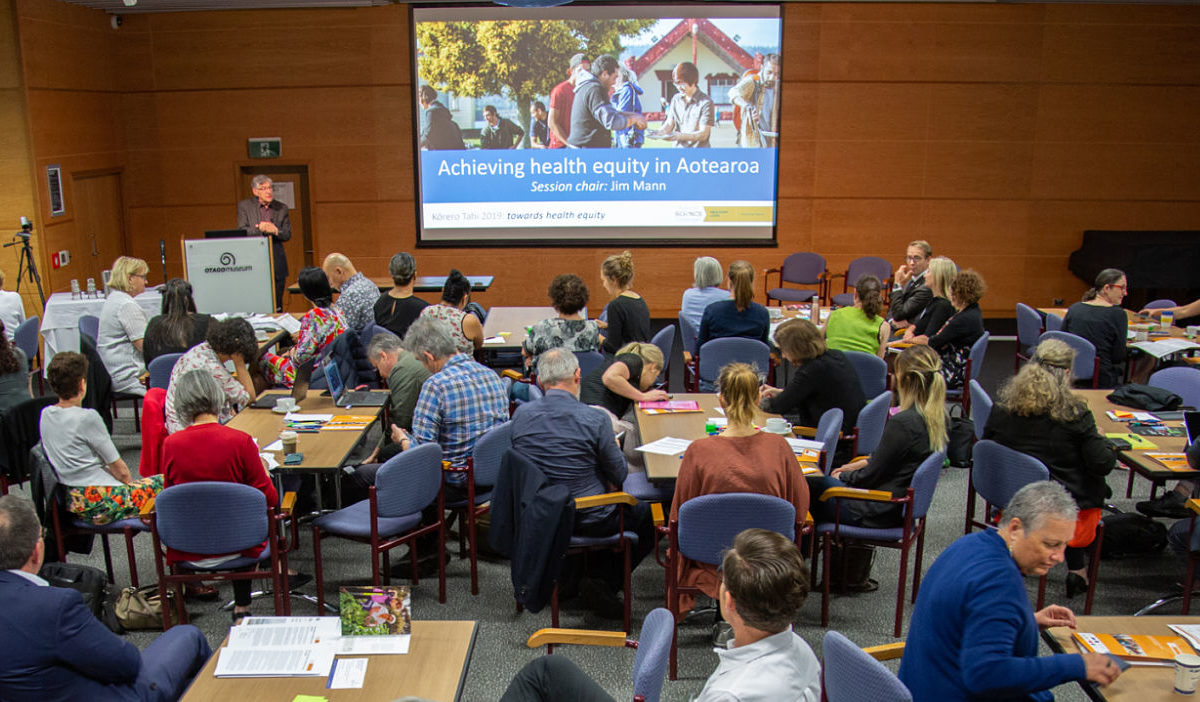Symposium: Healthier Lives Kōrero Tahi 2019
25 November 2019
In November, Healthier Lives held an internal meeting over two days in Dunedin for our research teams, community partners, key stakeholders, and members of the Governance Group and Kāhui Māori. Its theme was ‘Towards Health Equity’.

Co-design workshop
Crystal Pekepo from Toi Tangata led a workshop on co-design, which got the whole event off to a great start. She shared Mātauranga Māori to inform authentic and effective co-design approaches. Workshop participants applied what they had learned to a small co-design project and, through this process of working together in small groups, got to know each other better.
First phase projects: successes and challenges so far
The 10 projects from our first phase – some complete and others still underway – presented their research findings or work-in-progress. (Five of these projects are part of the Long Term Conditions partnership, jointly funded by Healthier Lives, the Ministry of Health and the Health Research Council.)
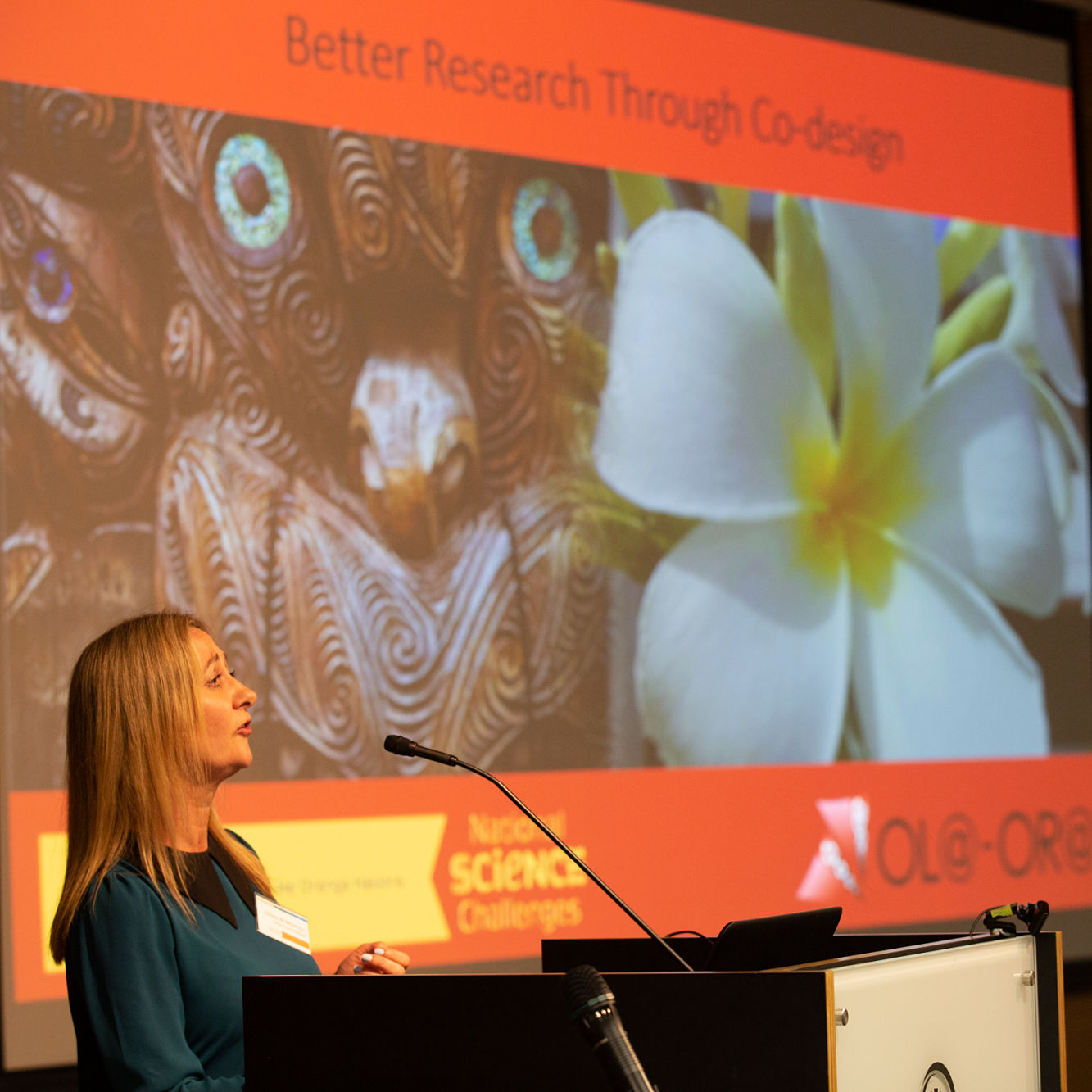
A highlight was hearing the perspectives of Māori and Pasifika health providers involved in the research. There were consistent messages coming through, such as:
- good health is not only a need but also a right;
- people living with multiple non-communicable diseases don’t want to be seen as ‘needy’ – they would like to give as well as receive support;
- technology can be helpful in supporting health and wellbeing but it is ‘cold’ and cannot substitute for social connection;
- to redress inequities in the current health system we should explore the role of trusted health navigators within community settings.
The wide range of research undertaken in phase 1 was impressive. One session focussed entirely on co-designed research, where community engagement was critical to implementing successful programmes. Another session focussed on novel approaches to reducing the burden of non-communicable diseases, ranging from the use of big data to identify population-level risk for cardiovascular disease, to innovative ways of managing diabetes, and genetic approaches to identifying individual responses to cancer treatment.
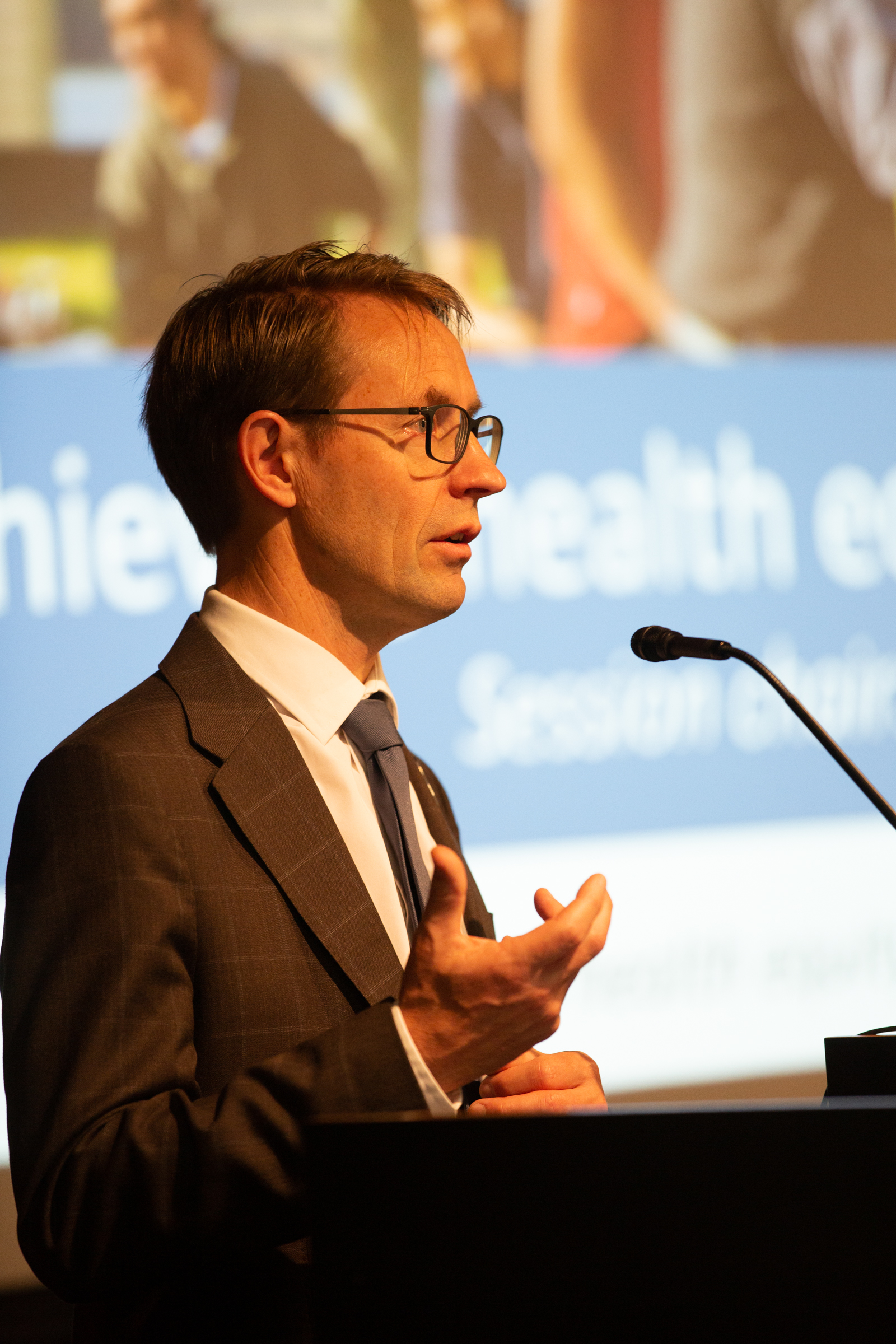
Stakeholders’ views: towards health equity
Several of Healthier Lives’ key stakeholders provided insights about how we can work together to achieve health equity in Aotearoa.
Ashley Bloomfield (Director General of the Ministry of Health) outlined the Ministry’s dual responsibility for leadership of a successful health system through bringing people together to reach nationally agreed (rather than centrally determined) decisions, as well as stewardship of the future health system. He noted that a lot of thinking is underway within newly established directorates for Māori Health and Population Health and Prevention but that the Ministry’s Executive team is collectively responsible for equitable outcomes. While acknowledging ongoing funding challenges he spoke about the current settings being “quite enabling” if we have enough imagination. The real challenge for moving towards equitable health outcomes, he said, is implementing the changes we already know are needed.
Amohia Boulton (Director of Whakauae Research for Māori Health and Development, and member of the Healthier Lives Governance Group and Kāhui Māori) spoke about the relationship between ethnicity data, decision-making and service development within DHBs. She reported a strong appetite for change, which would be assisted by increasing data capacity at all levels across the health system, and employing a Māori lens to help make sense of data and identify appropriate solutions.
Tevita Filisonu’u Funaki (Chief Executive of The Fono) spoke movingly about the people his service works with and their lived experience of deep health inequities. He described the interventions provided by The Fono and the profound outcomes these could deliver for individuals and fānau, with wider ripple effects for communities. This perspective is critically important for understanding why it is so important to strive for equitable health outcomes.
Jess Hewat (Manager, Health and ACC at the Treasury) discussed wellbeing economics and outlined the Government’s 2019 Wellbeing Budget and the living standards framework. She spoke about the need for system-wide change in how the public service works in New Zealand: to move beyond narrow measures of success, look at intergenerational outcomes, and take a whole-of-government approach to wellbeing.
Putting evidence into practice, and practice into evidence
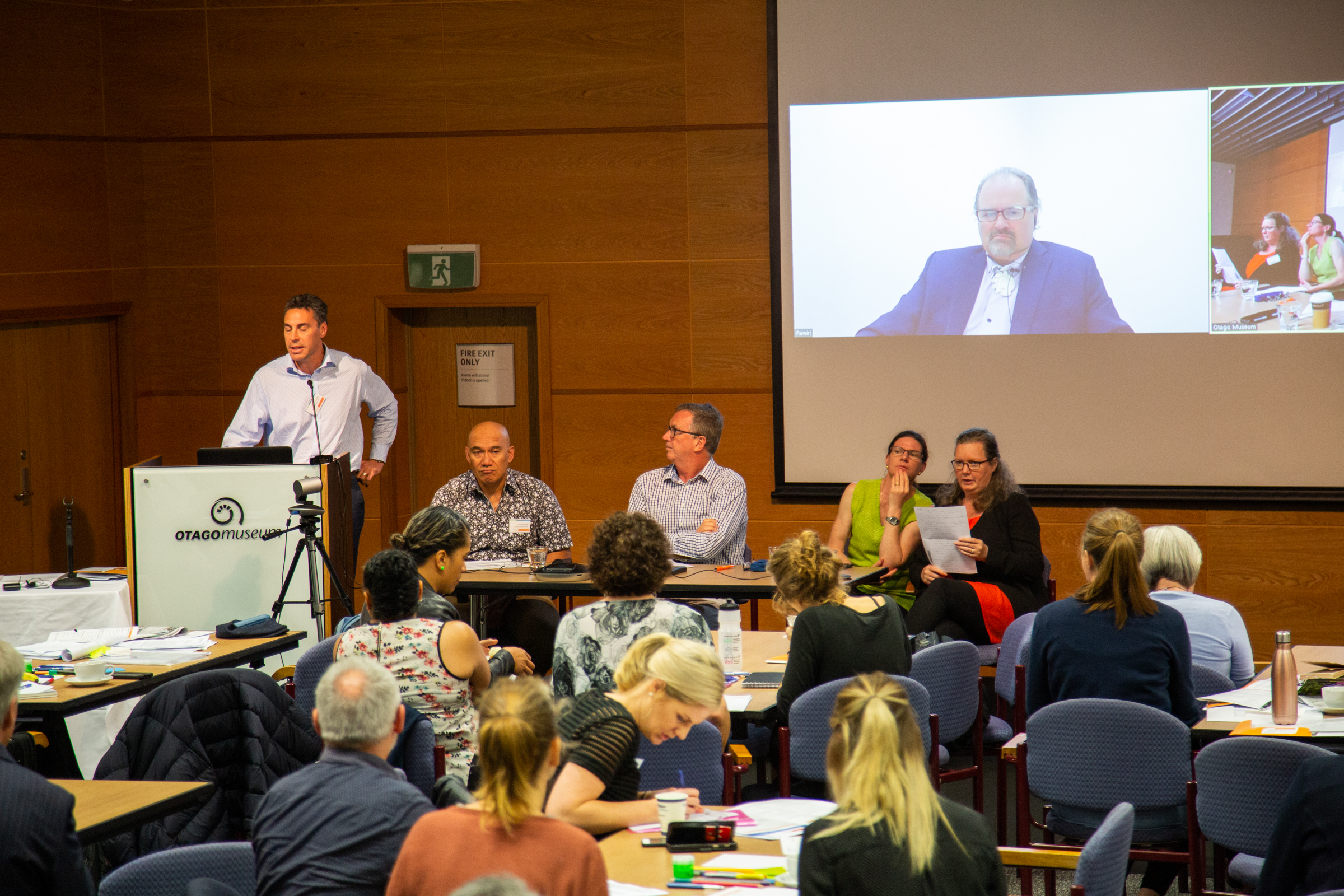
Tane Cassidy, Chief Executive of the Health Promotion Agency chaired a panel discussion which considered how research evidence can be used.
Speaking about the historic evaluation of the Healthy Eating Healthy Action programme, Harriette Carr (Deputy Director of Public Health at the Ministry of Heath) noted a potential mismatch between research ideas and community aspirations. Co-design approaches which enable community leadership and research expertise to be combined offer the way forward, she felt.
David Schaaf (Public Health Adviser at Counties Manukau DHB and member of the Healthier Lives Governance Group and Kāhui Māori) extended the concept of ‘precision medicine’ to encompass ‘precision interventions’ with whānau. He advocated for getting out of hospital clinics to see the world through the eyes of patients and looking for evidence about environmental factors contributing to health problems.
Karen Evison (Planning and Funding Manager at Lakes DHB) reminded us about the importance of breaking down homeostasis, and presented lessons from her time at the Ministry of Health when new approaches to smoking cessation were developed by challenging university researchers to bring in new collaborators and think about problems in new ways.
Gerry Devlin (Medical Director of the Heart Foundation) cited the Heart Foundation–Healthier Lives joint research venture as an example of organisational collaboration breaking down silos to address the evidence-practice gap, and find out why we don’t do what we already know works to prevent and treat cardiovascular disease.
Rawiri Jansen (Medical Director of the National Hauora Coalition) confessed to his “passionate and unreasonable” pursuit of equity and challenged the audience to set a date for achieving it – the 200th anniversary of the signing of the Treaty of Waitangi in 2040 – and start working towards it now. He proposed implementation science asking how do we employ the right services to the populations who need them? as a way forward.
Looking ahead
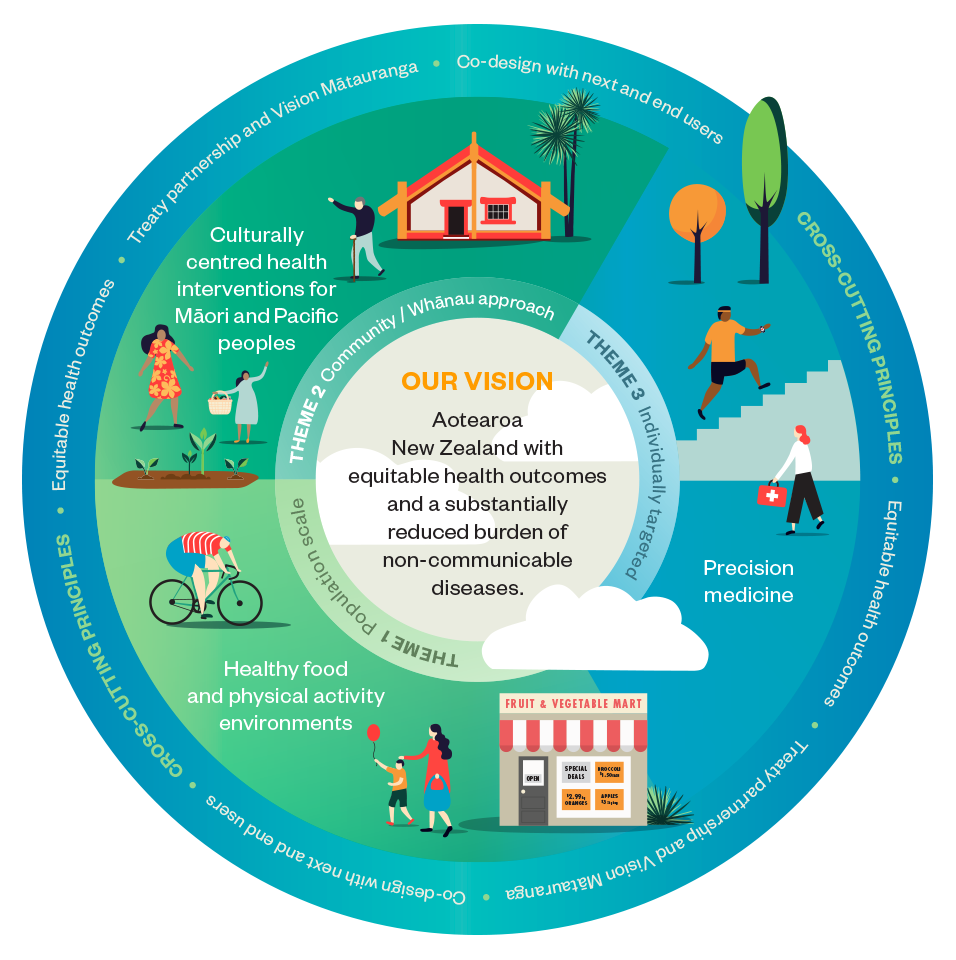
The Healthier Lives 2019-2024 research strategy was featured in the final session, with presentations about the three new research themes from Deputy Directors Parry Guilford, Cliona Ni Mhurchu and Andrew Sporle, as well as the two research support platforms from Andrew Sporle and Andrea Teng (big data) and Richard Edlin (economic evaluation).
To wrap up, one of our newest Science Leadership Team members, Greg Jones was given the tough job of summarising the Kōrero Tahi. He spoke about picking up the vibe of a science revolution in which “ownership of science is being taken by communities” and the role of expert has been flipped from researchers to particpants. The Kōrero Tahi had delivered on its promise of achieving better understanding across the whole Challenge, he felt, and had showcased the “remarkable achievements” of phase 1 research.
The Kōrero Tahi 2019 was a thought-provoking hui and an important milestone for Healthier Lives. It gave those associated with Healthier Lives an opportunity to gain a better understanding of the Challenge as a whole, as well as making connections across projects, building a stronger culture and strengthening our focus.
Originally published 17 December 2019.
